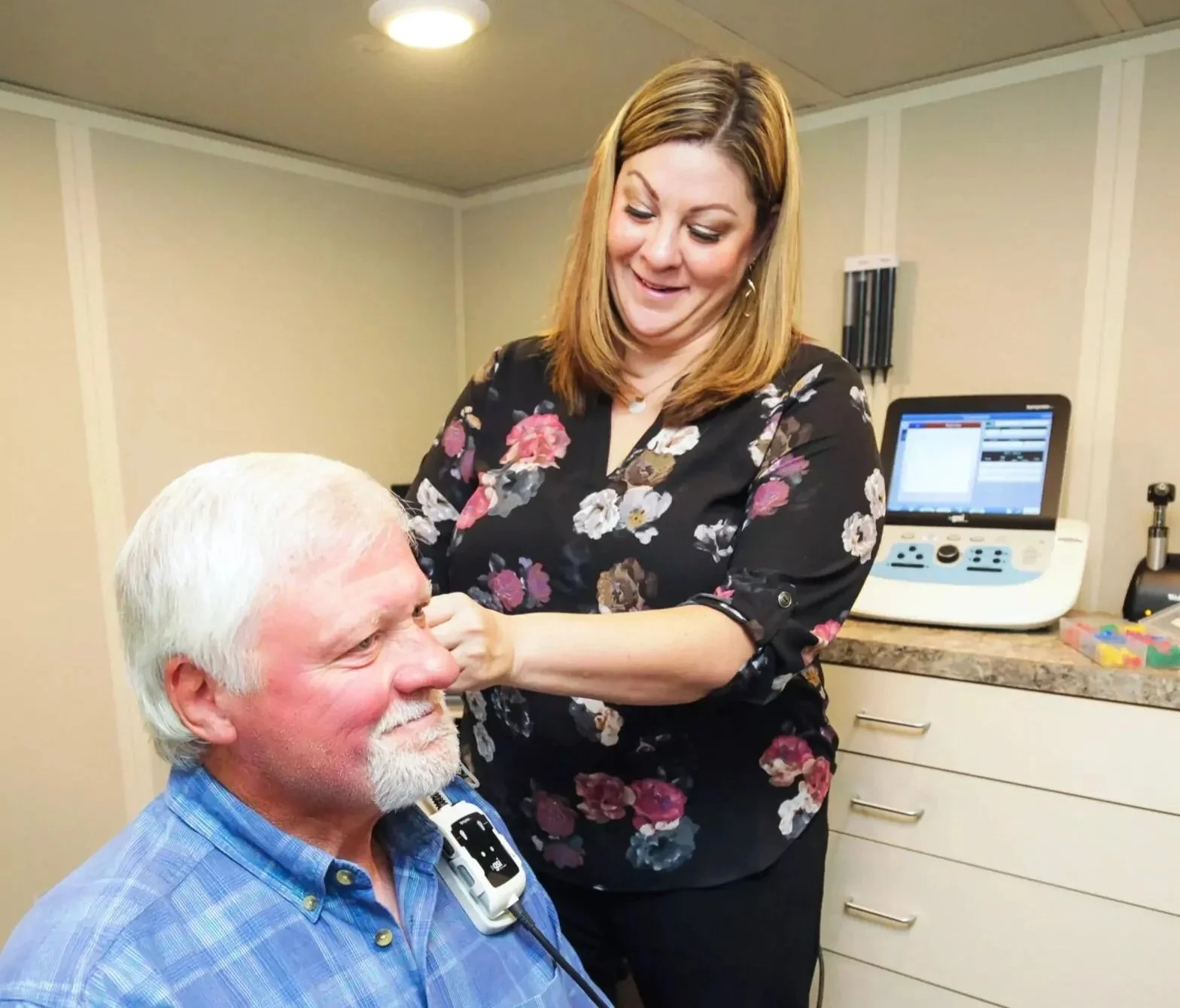
Hearing Evaluations & Testing are Crucial for Long-Term Hearing Health
At Cody Audiology Clinic, we utilize a comprehensive battery of tests to assess your hearing, how your brain responds to sound in challenging environments, and how well you may benefit from hearing technology. Just like routine dental or vision exams, regular hearing checkups are essential—even if you don’t notice any symptoms—because hearing changes often develop slowly and are hard to detect recognize.
During your appointment, we assess:
Your medical history
Basic cognition function
Ear canal and eardrum health
Middle-ear function
Hearing sensitivity through air and bone-conduction
The type and degree of any hearing loss
How well you understand speech in quiet and in background noise
Using these results, we determine evidence-based solutions that support your overall hearing and cognitive health.
Hearing tests are completely painless, and a comprehensive evaluation gives us a clear picture of what can improve your communication. If hearing loss is found, we provide a clear explanation and personalized treatment recommendation so you can make informed decisions.
Hearing Loss in One Ear Versus Hearing Loss in Both Ears:
Hearing loss doesn’t always affect both ears. Sometimes, it occurs in just one ear, a condition known as unilateral hearing loss or unilateral deafness
Our comprehensive hearing assessments are designed to determine which parts of your auditory system are affected, enabling us to develop the most appropriate, individualized treatment plan to meet your needs.
Sensorineural Hearing Loss
The most common type of hearing loss, sensorineural hearing loss occurs due to a problem with the inner ear or auditory nerve. It presents itself when either the auditory nerve or the hair-like cells in the cochlea have sustained damage or are missing. This results in the inability to send complete nerve signals to the brain. This kind of hearing loss can be caused by the following:
Genetics
Malformation of the inner ear
Exposure to loud noise
Aging
Head trauma
Illnesses
Drugs that are toxic to hearing (ototoxicity)
There Are Four Different Types of Hearing Loss
Although rather uncommon and typically temporary, a conductive hearing loss is caused when an issue in the outer or middle ear blocks sound from the inner ear. Treatment involves the use of medication or surgery. Some individuals opt to use hearing aids to improve their hearing ability. Conductive hearing loss can be caused by:
Ear infections
Benign tumors
Swimmer’s Ear
Foreign object in the ear
Fluid in the middle ear from colds
Absence or malformation of the outer ear, ear canal, or middle ear
Allergies
Perforated eardrum
Impacted cerumen (earwax)
Conductive Hearing Loss
Mixed Hearing Loss
When multiple parts of the ear’s anatomy are damaged, a mixed hearing loss can occur. In most cases, both the middle or outer ear along with the auditory nerve or inner ear have sustained an injury of some type or have encountered one of the conditions listed above. The conductive hearing loss present may be reversible while the sensorineural hearing loss is often permanent.
Auditory Processing Disorders
Rather than a hearing impairment which affects the ability to detect sounds, Auditory Processing Disorder (APD) causes individuals to struggle with their ability to organize, analyze, and interpret noises around them. While all parts of the ear are functioning properly, the auditory processing centers in the brain do not function normally and it is often due to a tumor, disease, injury, heredity, or an unknown cause. APD does not always include hearing loss and many times the treatments for this disorder are dramatically different when compared to treatment for a hearing loss.
STATE-OF-THE-ART HEARING HEALTHCARE
Cody Audiology Clinic Services
THE BEST AUDIOLOGY SERVICES IN THE BIG HORN BASIN, WYOMING AND SOUTHERN MONTANA


















